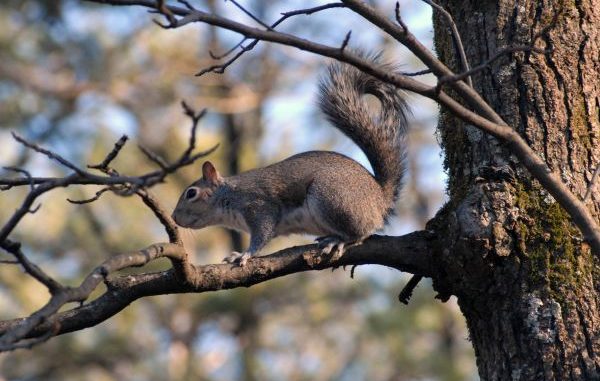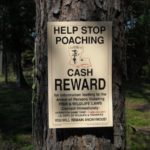
The best ways to share info with wildlife agents
November launches the opening of all major hunting seasons in Louisiana. Deer and waterfowl seasons are under way. Louisiana’s 53 wildlife management areas welcome public land hunters for various seasons and managed hunts. And let’s not forget Kisatchie National Forest and the other federal lands and refuges open to hunting.
For wildlife enforcement agents, this is the high point of the year. Now is payoff time for all the training and planning of the spring and summer, and when an agent really puts his skills to the test. How effective an agent might be in his patrol district and, as a result, how adequate is the resource protection he provides will be determined during this peak period.
The biggest challenge facing the agent is figuring out where to patrol. He will look for concentrations of waterfowl or where deer are easily seen from a road, for example. Focus on where the game might be found and chances are good this is where illegal activities will take place.
Even so, this can mean a lot of ground to cover for thinly distributed agents who might number no more than two or three to a parish.
Agents will improve the odds some by establishing contact with landowners, hunting clubs, and farmers and ranchers living in the rural areas with an eye on local activity.
But agents do rely heavily on the community in general to report poaching, and many people will make the effort. The problem is people often do not know how to go about doing so or what information will be useful to the investigating agent.
From 1984 until retirement from the Enforcement Division, a good bit of my time was devoted to coordinating with Louisiana Operation Game Thief Inc., the volunteer organization providing reward money for information leading to poaching arrests. In doing so I looked at a lot of reports of violations or suspected violations provided by the public.
Unfortunately, a lot of those reports were of little or no value — not because a violation didn’t take place, but because the call came too late or was lacking in specific information.
I remember one of the first calls to LOGT’s toll-free direct line into the department’s dispatch section. The caller named a specific parish and that was as far as specifics went. His information was that a lot of illegal night hunting went on there, but he had nothing else to offer as to where, who or when. The dispatcher thanked him for the call and urged him to call back with any information that could narrow the field for us a bit.
But what constitutes good, useful information, and what is the best way to get that information where it needs to go? Wildlife crime is still just that, crime. And good information about a crime falls in three categories:
• What is going to happen.
• What is happening right now or just happened.
• What happened before and will most likely happen again.
The absolute best information is about something that is going to happen in the near future. This allows the agent time get in position and prepared for when it does go down.
I’ll never forget a tip from someone who had to be very close to the poacher being reported. The caller identified the offender, described his truck, told when and where he would be night hunting for deer, and gave the location right down to which gate he would use on the way out. Sure enough, the poacher was right where the caller said he would be and right on time.
Such calls are rare — and very valuable.
The next best thing is the right-now or just-happened action. It is always a source of frustration to an agent when someone at the fuel pump or in the restaurant walks up and begins telling him about the 50 shots he heard after legal shooting hours on a duck roost last week or the five rifle shots he heard at one in the morning three nights ago.
Don’t hesitate to call right away when something happens or is happening. More than one night hunter has been caught with a freshly killed deer in the vehicle when someone heard the shot, got a look at the vehicle and the direction it was headed, and called an agent right then.
What has happened and when it happened repeatedly in a given location might be valuable to an agent, as well.
A friend once relayed to me some information passed along to him during a conversation with a fellow who lived in a small community in a pretty isolated area. This community had one winding, paved road. The road meandered through a mixture of homes, pastures and timber-company land where deer and other wildlife were plentiful. This fellow told of a truck driving through after midnight on weeknights, spotlighting the pastures and woods. The wee-hours visits were fairly regular.
This information was passed along to two fellow agents who patrolled the area. They decided it was worth a try, and shortly after midnight on a weeknight they got in position on a hill overlooking the little winding road, killed the lights and got prepared for a long wait they did not have to endure this time.
Within minutes, here came the slowly driving truck shining the pastures and woods. The agents made the stop and introduced themselves to the three men in the cab who had rifles in addition to the spotlights.
Case closed.
When I saw one of those agents later, he related the story and grinned. “Now that’s what I call good information,” he said.
So what is the best way to report wildlife violations?
As stated in a previous column, your best bet is to know and have direct contact with the wildlife enforcement agents working in your area. If you don’t know them, contact the nearest region office and speak with the captain. Ask him to have them get in touch with you. Agents are happy to provide a business card and contact information, including cell numbers and most are thrilled to get a hot tip no matter what time of the day or night.
If unable to reach an agent directly, contact the region office and ask to speak with the Enforcement Division. The region offices are a Monday thru Friday 7 a.m. to 5:30 p.m. operation.
After hours, during holidays and on weekends, Operation Game Thief (800-442-2511) is the way to go, and that number will be answered 24 hours a day, seven days a week.
Good luck, be safe and have a great Thanksgiving.




